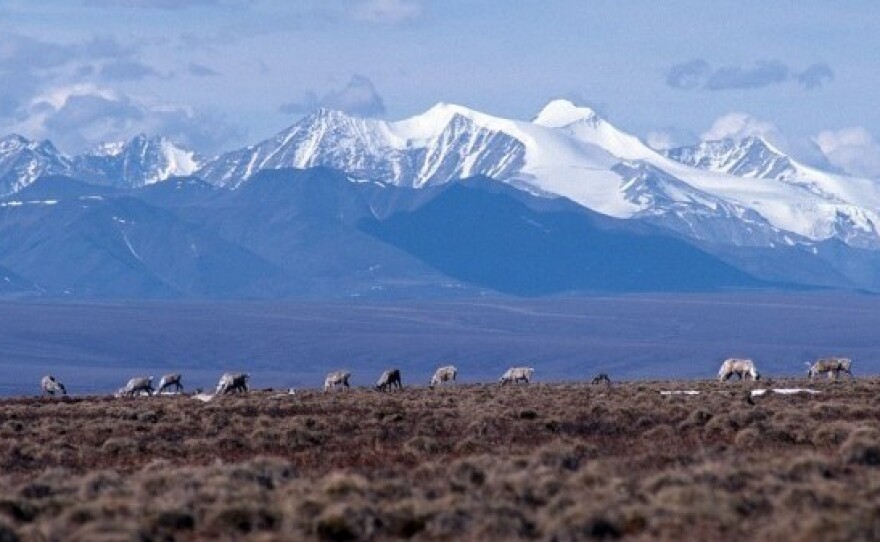One of the Trump administration's biggest environmental reversals turned into something of a bust Wednesday. A long-awaited oil lease sale in Alaska's Arctic National Wildlife Refuge attracted little interest, with no major oil companies submitting offers.
Instead, Alaska's state-owned economic development corporation was the only bidder on about 10 oil leases in the northernmost piece of the refuge, called the coastal plain. Two small companies also submitted bids. Some areas drew no offers at all.
The sale generated about $14.4 million, said Kate MacGregor, deputy secretary at the U.S. Department of the Interior, in a live broadcast after the bids were read. That's a small fraction of what the sale was projected to raise.
It's a striking moment in a 40-year battle over whether to drill for oil in one of the country's most pristine stretches of land. The refuge is home to migrating caribou and birds, and an important habitat for polar bears.
Environmentalists and other drilling opponents have led an aggressive campaign to try to keep companies out of the refuge. A number of major banks say they won't fund oil projects in the Arctic.
Opponents have also filed multiple lawsuits seeking to block drilling. They've raised concerns about its impacts on Indigenous people, the global climate and wildlife, including the caribou that give birth in the coastal plain and the polar bears that den there. Even if leases are sold, legal experts say it's possible that courts could later cancel them.
Normally it would take about two months to finalize leases. But the Bureau of Land Management is expected to rush to issue them formally before President Trump leaves office in two weeks.
Even if it succeeds, continued oil leasing and drilling in the refuge will face headwinds, says U.S. Rep. Jared Huffman, D-Calif., a longtime drilling opponent.
"With the change of administrations and the outcome of the Senate races, we've got a real opportunity to rein this in, and I'm going to be doing everything I can to make that happen," he said in an interview.
The lease sale stems from a tax law passed by a Republican-led Congress in 2017.
The bill opened the coastal plain to drilling after decades of debate and ordered two lease sales, with the revenue aimed at offsetting massive tax cuts. But the amount raised is nowhere near what was projected.
The law mandates the second sale by the end of 2024, posing another challenge during Joe Biden's term. Congress would have to pass a law to undo that part of the tax act if it doesn't want to follow through.
Copyright 2021 Alaska Public Media. To see more, visit Alaska Public Media.






